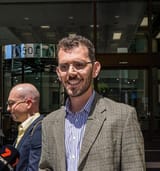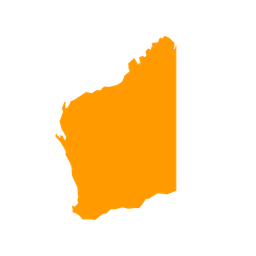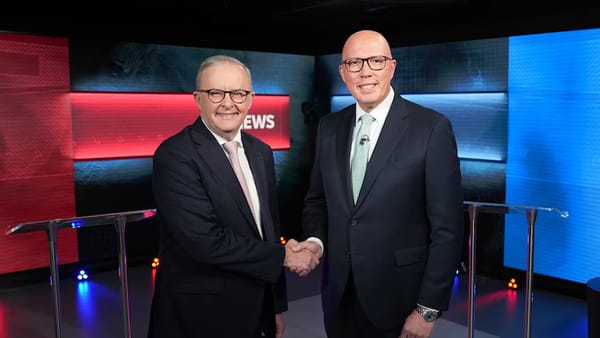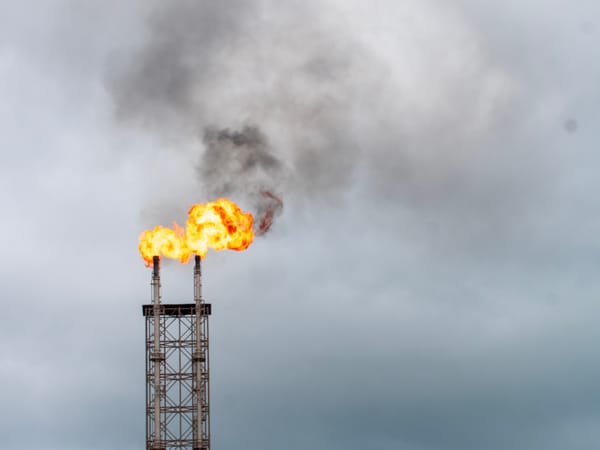Garbage in, garbage out
Plus: Who is in Roger Cook's wolf pack? And why is Seven West in a spin over an English exam?
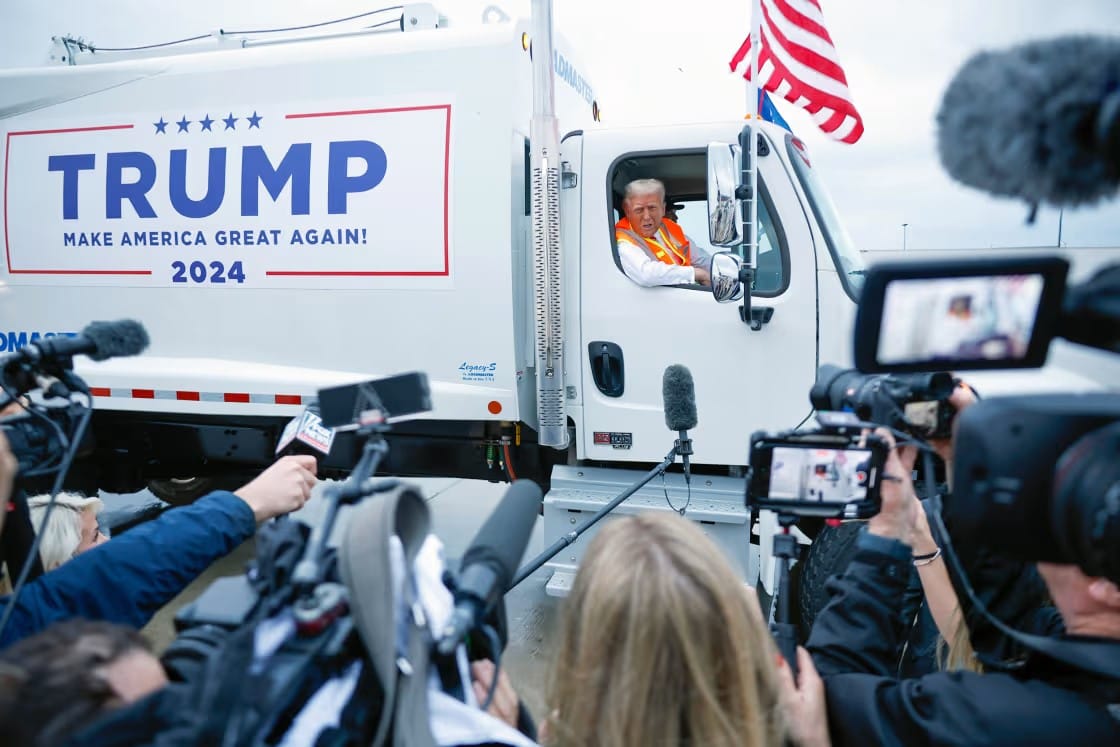
The Last Place on Earth is a new media project on power and politics in the west. In today's edition of 'The Week in the West':
- Why has ‘garbage’ become the memetic focal point of the final stage of the US election campaign?
- Roger Cook says he’s part of a Western Australian pack – with who exactly?
- We speak to an English teacher on this week’s Year 12 exam and the challenge of inhabiting an octopus’s perspective.
This week at The Last Place on Earth, we published an essay by our friend Joana Partyka on what it’s like to trigger the Murdoch and Stokes media empires for taking on big gas:
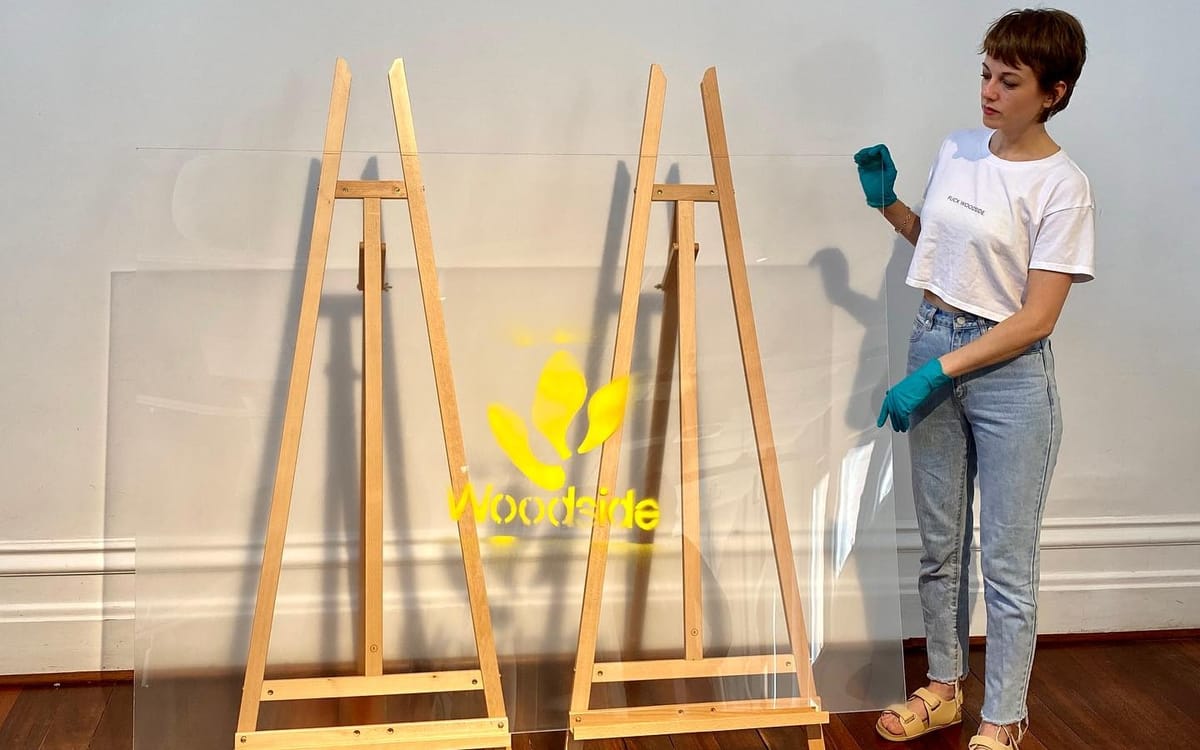
If you like what we're doing, subscribe for more:
Forget policies – elections these days are all about the memes.
At various points in this US election cycle, the memes have coalesced around a central conceptual focal point – something emotive, concrete, and ordinary to act as connective tissue between fragmented political conversations being conducted in various echo chambers and alternate media universes. For a while, that focal point was the internet’s perennial favourite thing: cats. There was J.D Vance’s ‘childless cat lady’ comments, Taylor Swift’s self-identification as such, a ‘Cat Ladies for Harris’ Zoom call, Trump posting ghastly AI-generated images of himself with ‘cute’ cats, and of course, “They’re eating the dogs … they’re eating the cats.”
Now, in the home stretch, everyone’s talking about garbage: Last week, Trump said America was “like a garbage can for the world”. Then, a racist comedian called Puerto Rico a “floating island of garbage” at Trump’s Madison Square Garden rally. Depending on whether you believe your own ears or whether you believe the White House’s doctored transcript, Joe Biden either said that Trump’s supporters were garbage, or that one supporter in particular (the aforementioned comedian) was garbage. (Trump’s immediate response from a rally stage was quite high-brow for him: “[Hilary Clinton] said deplorable; that didn’t work out. Garbage I think is worse, right? But he doesn’t know, you have to please forgive him. Please forgive him, for he not knoweth what he said.” The biblical allusion suggests the line might have been workshopped for him and kept in reserve.) Whether Biden’s comments were out of context or not ultimately didn’t matter: They were enough of an excuse for Trump to climb into a garbage truck for some working class cosplay and an excellent photo opportunity.
After Trump manned the McDonalds fry machine last month, I saw an excerpt from Andy Warhol’s The Philosophy of Andy Warhol (From A to Z and Back Again) popping up in a few places online:
“I've always thought that the President could do so much here to help change images. If the President would go into a public bathroom in the Capitol, and have the TV cameras film him cleaning the toilets and saying 'Why not? Somebody's got to do it!' then that would do so much for the morale of the people who do the wonderful job of keeping the toilets clean. I mean, it is a wonderful thing that they're doing.
“The President has so much good publicity potential that hasn’t been exploited. He should just sit down one day and make a list of all the things that people are embarrassed to do that they shouldn’t be embarrassed to do, and then do them all on television.”
Mark up another moment of prescience for Warhol, though it must be said Trump is much more interested in changing his own image than that of his working-class supporter base. It’s a bit of a cliche to say that Warhol predicted/created the world we live in, but it's also true: the mass commodification of aesthetics, the predominance of self-documentation, short-lived viral fame, and other hallmarks of life in the 21st century were anticipated in his work. Warhol memeified himself before the concept existed.
This is an Andy Warhol election: facile, colourful, obsessed with celebrity, but with a seriousness and a darkness hanging around the edges of the frame.
In Australia, our politicians don’t yet swim quite so well in these waters, but I suspect we’re headed along a similar trajectory.
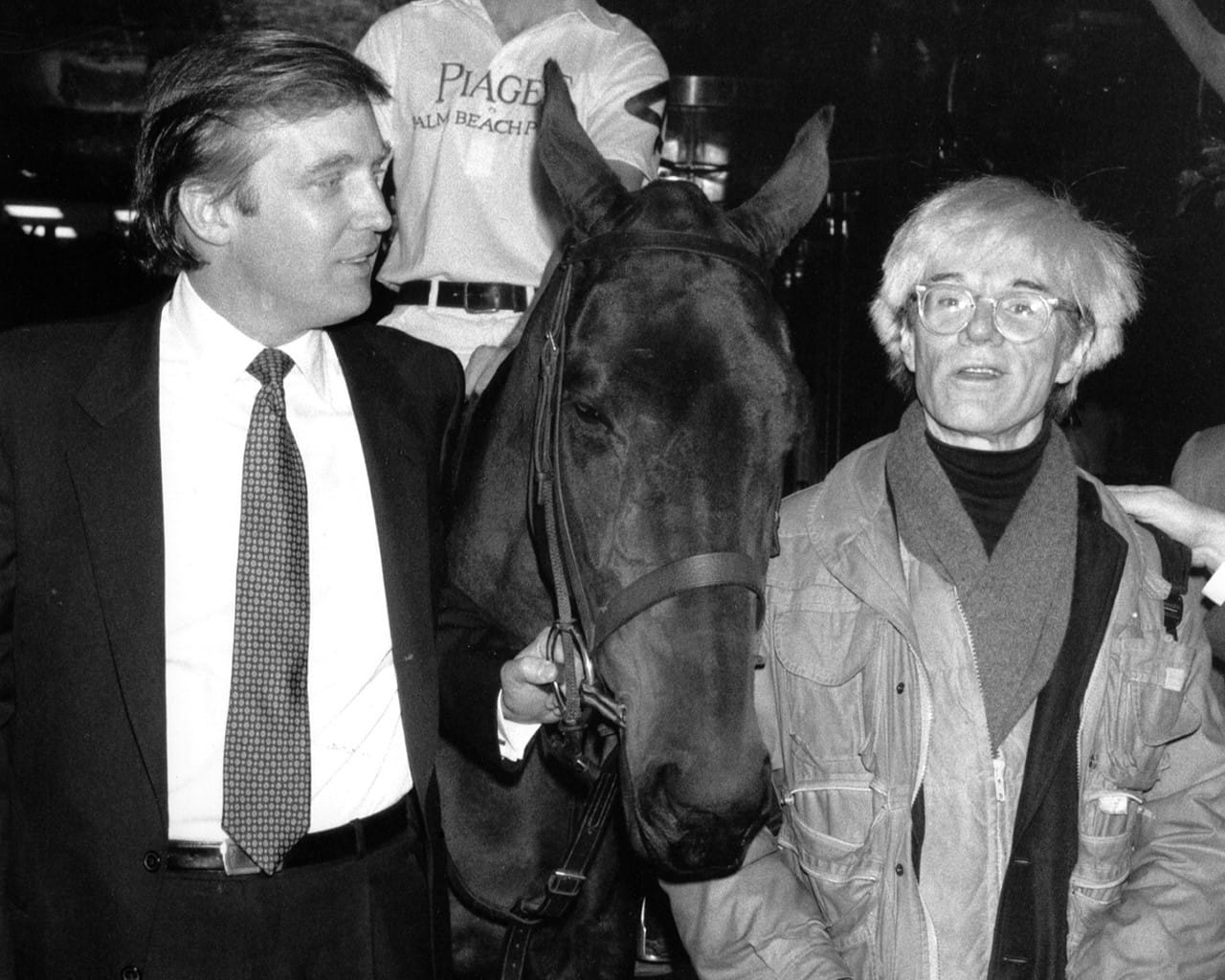
Werewolves of St George’s Terrace
WA Premier Roger Cook told a business lunch this week that “Western Australia hunts in packs” when it comes to issues like industrial relations reform and the federal government’s delayed Nature Positive plan.
“We’ll continue to make sure that we do everything we can to support Western Australian industry in relation to that dialogue,” he said regarding the federal government’s plans to boost union power. Forget solidarity forever.
Cook’s metaphor sparks all kinds of questions: Who exactly is in the pack? Workers don’t appear to be included. Who or what is being hunted? Federal legislation? Western Australian nature and wildlife? And what’s Cook’s role in this pack? He doesn’t exactly strike me as the leader.
West spins clothesline exam question
Year 12 exam time always makes for a good media story or two. My favourite so far this year has come from New South Wales, where there was controversy after students were asked to analyse a seemingly AI-generated “photograph” in their HSC English exam – an example of the humanities seeming happy enough to hasten along their own demise.
Meanwhile, The West Australian ran a front-page story yesterday on our own state’s English exam, which asked students to analyse a photo of an art installation featuring a hills hoist clothesline. “Hung Out to Dry”, screamed the headline. “The exam also included a novel excerpt written from the viewpoint of an octopus,” according to the front page. The subtext: What kind of woke nonsense is this?
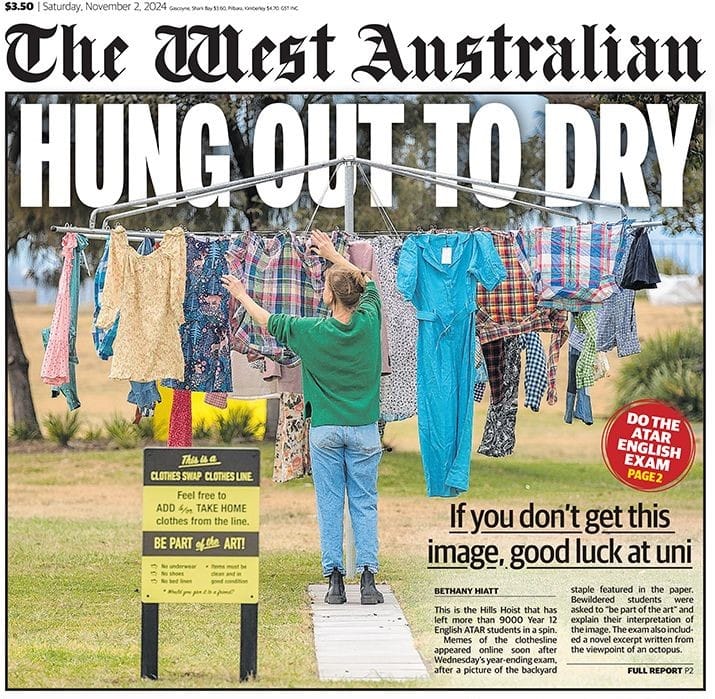
One experienced ATAR English teacher, who preferred to remain anonymous, told The Last Place on Earth the exam was fair, though the clothesline question was tricky. “Many teachers and students across the state would have been expecting a photograph without the added complexity of the photograph being of an art installation,” she said.
Meanwhile, she said the octopus question was fine, and kids who knew their course concepts would have been all good with it.
“It's rather predictable for subject English to receive such blatant criticism,” she said. “It's disappointing but also not surprising to see The West engaging in a culture war over a subject frequently branded as too conceptual. Anecdotally, many candidates shared their feelings that the exam was fine. Although it is also true that many average punters would find sections of other ATAR exams difficult, it's unlikely that you'll see a news story about the Math Apps exam on the front cover of The West.”
One difference, I suppose, is that English is compulsory for ATAR students, while maths is not. As a former English teacher myself, I’m no great fan of exam culture, and I’m not convinced retaining the subject as compulsory is the only way to ensure prospective uni students have the prerequisite language skills. Still, this was an easy little bit of humanities-bashing from The West. The irony is that no Gen Z student would ever choose to pick up a copy of the paper – their critical literacy skills are far too well developed to be taken in by all the spin.

